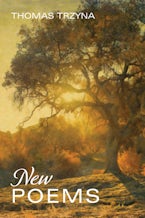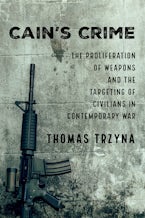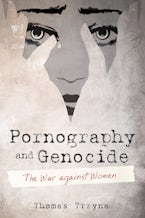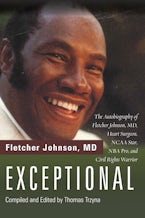- Home
- poetry
- political science
- New Poems
Afterwards
Whether they be high or low, the future
Seas will wash shores somewhere, shelves of shale
Wear and crack, sandstone dissolve to dunes,
Crustaceans scuttle . . .
New Poems reflects on the state of our planet. It explores insights from Pascal, Euler, Feynman and other physicists, and anatomizes spiritual epiphanies. These excursions join poems about the lives of immigrants and refugees, and the paradoxes of how they settled on Native American lands once claimed by conquistadores. California's arid valleys, deserts, and coastal bluffs frame many of these portraits, as does the often-imperiled endurance of California's oaks.
Music, meaning, and meter are married in poems that employ blank verse, sonnets, canzone, and other forms bound by the structure of rhyme and rhythm.
Thomas Trzyna’s poems have appeared in journals across the nation. He is the author of books on war and peace, women’s rights, African American studies, literature, mathematics, and philosophy, among them Pornography and Genocide: The War Against Women and Karl Popper and Literary Theory: Critical Rationalism as a Philosophy of Literature.
“In this language-rich collection, Trzyna ranges from abstruse reflections on imaginary numbers to descriptions of ordinary ‘boxes of rubber and leather heels’ in a cobbler’s shop. The wide variety in imagery—as in poems that honor the California oaks, or exotica like the ‘shocking crimson birds with emerald wings’ of Muscat—yields a poetry alive to and filled with respect for the natural world and the people who inhabit it. A delight to read!”
—Ralph “Skip” Stevens, author of At Bunker Cove and Things Haven’t Been the Same
“Trzyna’s strongly musical poems with ‘fat vowels like mustachioed porpoises’ paint portraits of the land and the people from Danzig to California. They bring us aunts playing gin rummy, the laborer who fled Alabama and grew onions on a toxic landfill, the Japanese gardener who killed himself rather than be taken to the camps. Trzyna laments what we’ve lost and helps us think harder about the world we want to live in.”
—Deborah Bacharach, Seattle Pacific University




